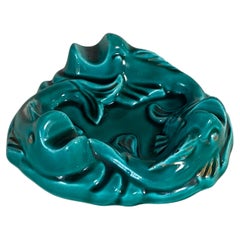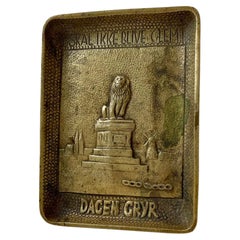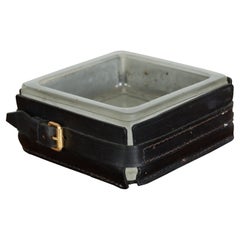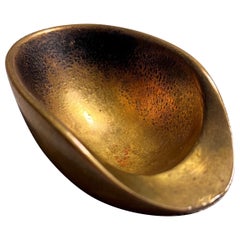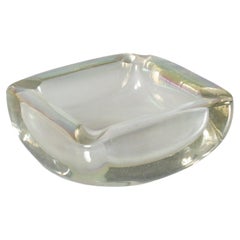Ashtrays
1940s French Art Deco Vintage Ashtrays
Ceramic
1940s Danish Victorian Vintage Ashtrays
Bronze
1940s Japanese Modern Vintage Ashtrays
Ceramic
1940s Vintage Ashtrays
Brass
1940s Austrian Mid-Century Modern Vintage Ashtrays
Brass
1940s Italian Mid-Century Modern Vintage Ashtrays
Murano Glass
1940s French Vintage Ashtrays
Leather, Bamboo
1940s French Art Deco Vintage Ashtrays
Glass
1940s Italian Art Deco Vintage Ashtrays
Murano Glass
1940s Italian Art Deco Vintage Ashtrays
Murano Glass
1940s Italian Art Deco Vintage Ashtrays
Murano Glass
1940s Italian Art Deco Vintage Ashtrays
Murano Glass
1940s French Neoclassical Vintage Ashtrays
Bronze
1940s Italian Vintage Ashtrays
Murano Glass
1940s French Neoclassical Vintage Ashtrays
Brass, Bronze
1940s Italian Art Deco Vintage Ashtrays
Gold
1940s French Vintage Ashtrays
Glass
1940s French Vintage Ashtrays
Brass
1940s Danish Mid-Century Modern Vintage Ashtrays
Ceramic
1940s Italian Art Deco Vintage Ashtrays
Gold
1940s Italian Art Deco Vintage Ashtrays
Ceramic
1940s Classical Greek Vintage Ashtrays
Bronze
1940s Italian Art Deco Vintage Ashtrays
Murano Glass
1940s Italian Art Deco Vintage Ashtrays
Murano Glass
1940s French Art Deco Vintage Ashtrays
Ceramic
1940s Swedish Scandinavian Modern Vintage Ashtrays
Brass
1940s Italian Art Deco Vintage Ashtrays
Murano Glass
1940s Italian Art Deco Vintage Ashtrays
Murano Glass
1940s Italian Art Deco Vintage Ashtrays
Murano Glass
1940s Italian Art Deco Vintage Ashtrays
Murano Glass
1940s Italian Art Deco Vintage Ashtrays
Murano Glass
1940s Italian Art Deco Vintage Ashtrays
Murano Glass
1940s Italian Art Deco Vintage Ashtrays
Murano Glass
1940s Italian Art Deco Vintage Ashtrays
Murano Glass
1940s Italian Art Deco Vintage Ashtrays
Murano Glass
1940s Italian Art Deco Vintage Ashtrays
Murano Glass
1940s Italian Art Deco Vintage Ashtrays
Murano Glass
1940s Italian Art Deco Vintage Ashtrays
Murano Glass
1940s French Art Deco Vintage Ashtrays
Art Glass
1940s Italian Mid-Century Modern Vintage Ashtrays
Glass
1940s Italian Other Vintage Ashtrays
Murano Glass
1940s Italian Art Deco Vintage Ashtrays
Murano Glass
1940s Italian Mid-Century Modern Vintage Ashtrays
Gold Leaf
1940s Italian Mid-Century Modern Vintage Ashtrays
Metal
1940s Japanese Mid-Century Modern Vintage Ashtrays
Porcelain
1940s Scandinavian Vintage Ashtrays
Crystal
1940s Italian Other Vintage Ashtrays
Murano Glass
1940s Italian Mid-Century Modern Vintage Ashtrays
Optical Glass
1940s Danish Art Deco Vintage Ashtrays
Pottery
Antique, New and Vintage Ashtrays
Once a near-universal tabletop accessory, many antique, new and vintage ashtrays have taken on an entirely new purpose in today’s homes.
Whereas these formerly ubiquitous objects were associated with smoking, drinking, gambling and other vices, a well-designed and interesting ashtray is a candy dish, coaster or cocktail garnish receptacle in today’s interiors. But don’t discount its initial function. Amid your carefully curated coastal chic California decor, for example, a stone ashtray can help you manage the ashes that accumulate while you’re burning your morning incense. Old glass ashtrays, which are quite popular and easily found in free-form, organic shapes, can be a purely decorative final touch when styling a coffee table, whether you’ve filled it with wrapped lemon-drop candies or not.
In the postwar years, the democratization of luxury led to an explosion in the number of well-designed ashtrays, and there are many mid-century modern ashtrays to choose from on 1stDibs. (It’s no coincidence that sculptor Isamu Noguchi devised his “Dymaxion” version, which he hoped would make him rich, in 1945. Alas, it turned out to be too difficult to mass-produce.) The design collection of the Museum of Modern Art includes ashtrays by Carlo Scarpa (Murano glass, 1950–59); Achille Castiglioni (stainless steel with spring-like inserts, 1970); Masayuki Kurokawa (rubber and steel, 1973) and more. Smoking declined in popularity in the 1970s and ’80s, after the surgeon general’s warning began appearing on cigarette packs, but designers were still crafting ashtrays through the end of the century (especially outside the United States).
On 1stDibs, browse a collection of antique, new and vintage ashtrays that includes everything from modern and minimalist cigar ashtrays to outwardly ornate Art Deco ashtrays that evoke the opulence and elegance of the 1920s.
